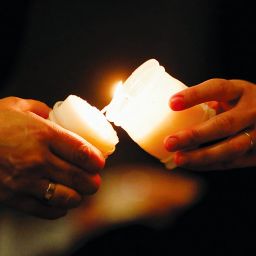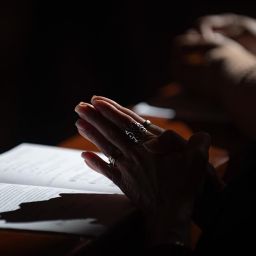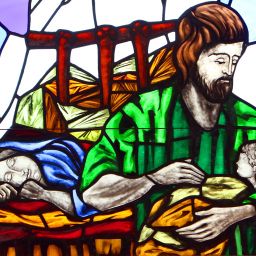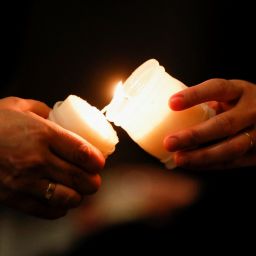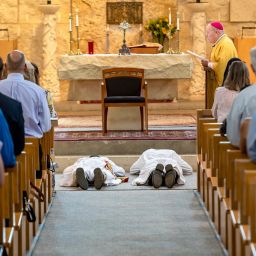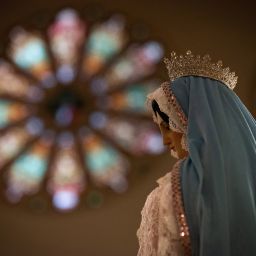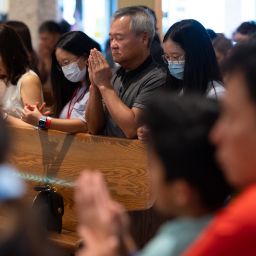By Father John Bayer
Special to The Texas Catholic
One of the shibboleths of our times is the word diversity. Our use of the word can easily signal our social, political and philosophical sympathies. It is ubiquitous in our culture, advertising and corporate life, and it is frequently portrayed as a moral value, one of the few claimed by our ostensibly secular society.
What should biblically-minded people think about diversity? Rightly understood, diversity is a biblical idea. When God created the world, he looked upon “everything he had made” — all the varied creatures that make our world symbiotic and beautiful — and declared them “very good” (Gn 1:31). When he commissioned the apostles to gather disciples from “all nations” (Mt 28:19), he made clear that all men and women are called to convert and offer the treasures of their various cultures to the Kingdom of God (Rev 21:26). He loves us, no matter our differences in race or sex. The unity-in-difference between male and female is in fact part of what makes us his image (Gn 1:27).
St. Paul too speaks about diversity, and he essentially connects it to unity. Diversity refers to the various gifts given by the Holy Spirit to nourish the common life and mission of the Church: “There are different kinds of spiritual gifts but the same Spirit; there are different forms of service but the same Lord; there are different workings but the same God who produces all of them in everyone. To each individual the manifestation of the Spirit is given for some benefit” (1 Cor 12:4-7). After the Ascension, Jesus “gave gifts … to equip the holy ones for the work of ministry, for building up the body of Christ, until we all attain to the unity of faith and knowledge of the Son of God” (Eph 4:8-13). St. Paul lists so many gifts: wisdom, knowledge, faith, healing, mighty deeds, prophecy, discernment of spirits, tongues, interpretation, assistants, administrators, apostles, evangelists, pastors, teachers – basically anything that promotes the life of true and eternal love promised by Jesus.
Unity and diversity are thus correlative terms, and they are anchored in God. Jesus prayed that we might share in his unity with the Father (Jn 17:21). After his resurrection, he breathes his Spirit upon us so that we might live his own life and thus extend his own mission from the Father (Jn 20:21-22). With his Spirit in us, our life is an extension of his own, like branches of a vine. Our shared life in the Spirit is defined by the same love and reciprocity that distinguish the unity of the Trinity. At the same time, precisely because our unity is grounded in the Holy Spirit, it is not a monolithic conformity. Members of the Body of Christ do not disappear into each other like the Borg in “Star Trek,” aliens who assimilate into a collective machine at the price of their personhood. Because we believe in the Trinity, we are looking for a diversity that allows each person to enter into full possession of the gifts God wishes to give, gifts that distinguish each person as his unique son or daughter, gifts that lead us to true love and service, and thereby to an ever deeper union in the Body of Christ.
Isn’t that beautiful? It is important to note that God is the one who alone can identify and distribute the gifts that lead to the authentic and eternal unity of divine love. Not every difference leads to true diversity, just like not every identity creates true unity. Playing golf with a basketball is not a diverse way to play golf — it is a way to introduce chaos and destroy the game. Silencing legitimate dissenting voices does not establish unity — it only further alienates those we want to unify.
There are differences that lead to division, and conformities that lead to tyranny. For this reason, we must always look to God in our pursuit of unity in diversity. Thus, Pope Francis writes in Evangelii Gaudium 131:
“Diversity must always be reconciled by the help of the Holy Spirit; he alone can raise up diversity, plurality and multiplicity while at the same time bringing about unity. When we, for our part, aspire to diversity, we become self-enclosed, exclusive and divisive; similarly, whenever we attempt to create unity on the basis of our human calculations, we end up imposing a monolithic uniformity. This is not helpful for the Church’s mission.”
When we seek diversity apart from God, on our own terms or for its own sake, we make division and disorder. But when we receive diversity from God as a gift given for his purposes, we enjoy it as something leading to a rich and harmonious unity.
Let us examine our times in the light of the Gospel, and let us judge as Jesus commands — that is, “justly” and not “by appearances” (Jn 7:24). We as Catholics have a responsibility to help ourselves and our contemporaries discover the God-given gifts that make us truly and beautifully diverse, and thereby well-equipped through those gifts to participate in Jesus’ work of reconciling and giving life to the world.
Father John Bayer, O. Cist., is a monk at the Cistercian Abbey of Our Lady of Dallas in Irving.


